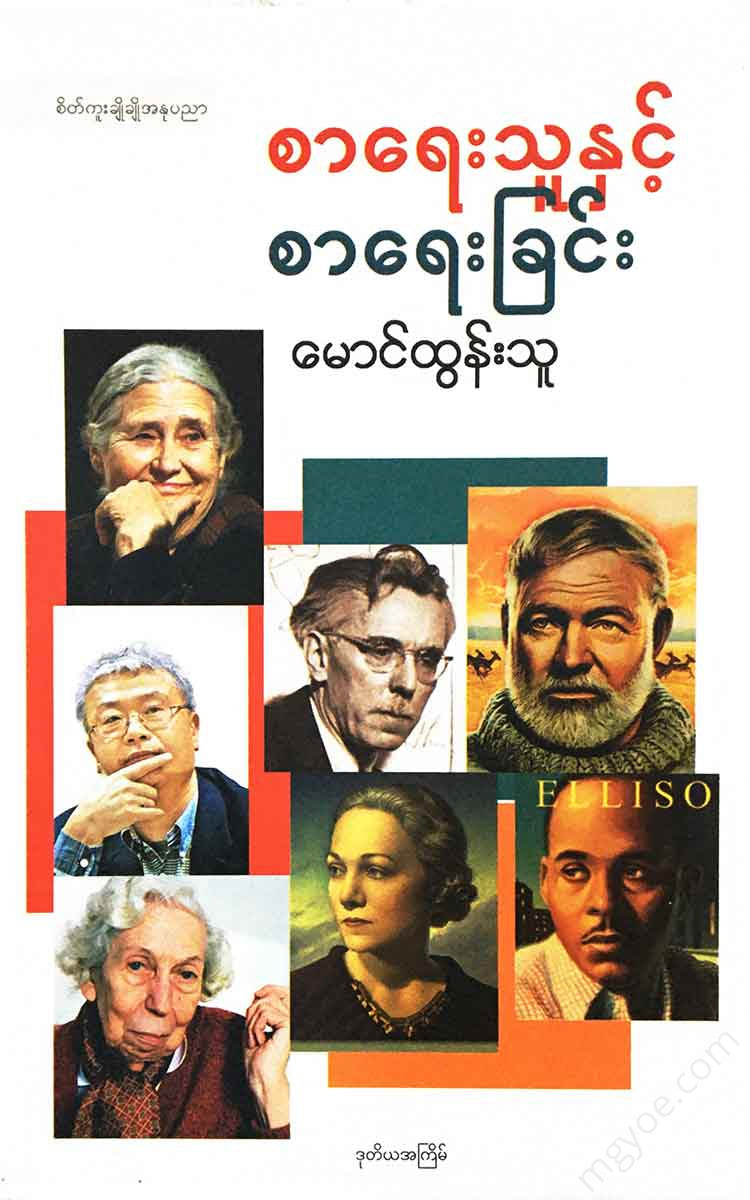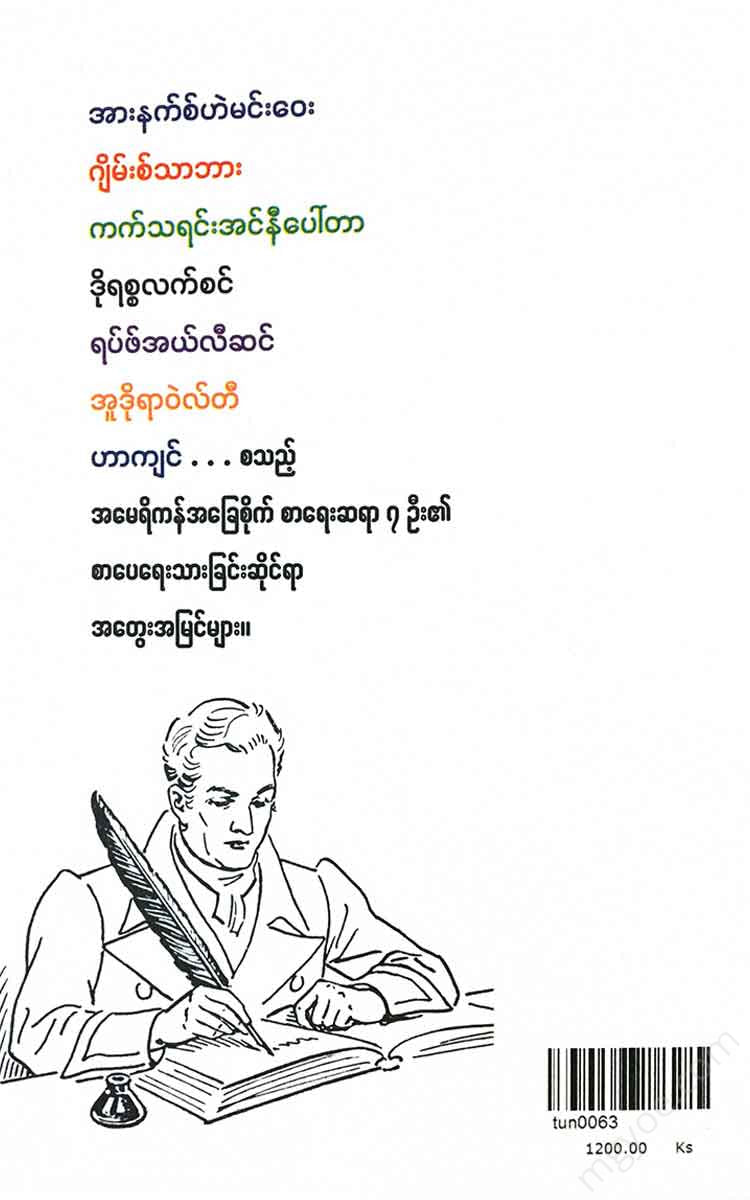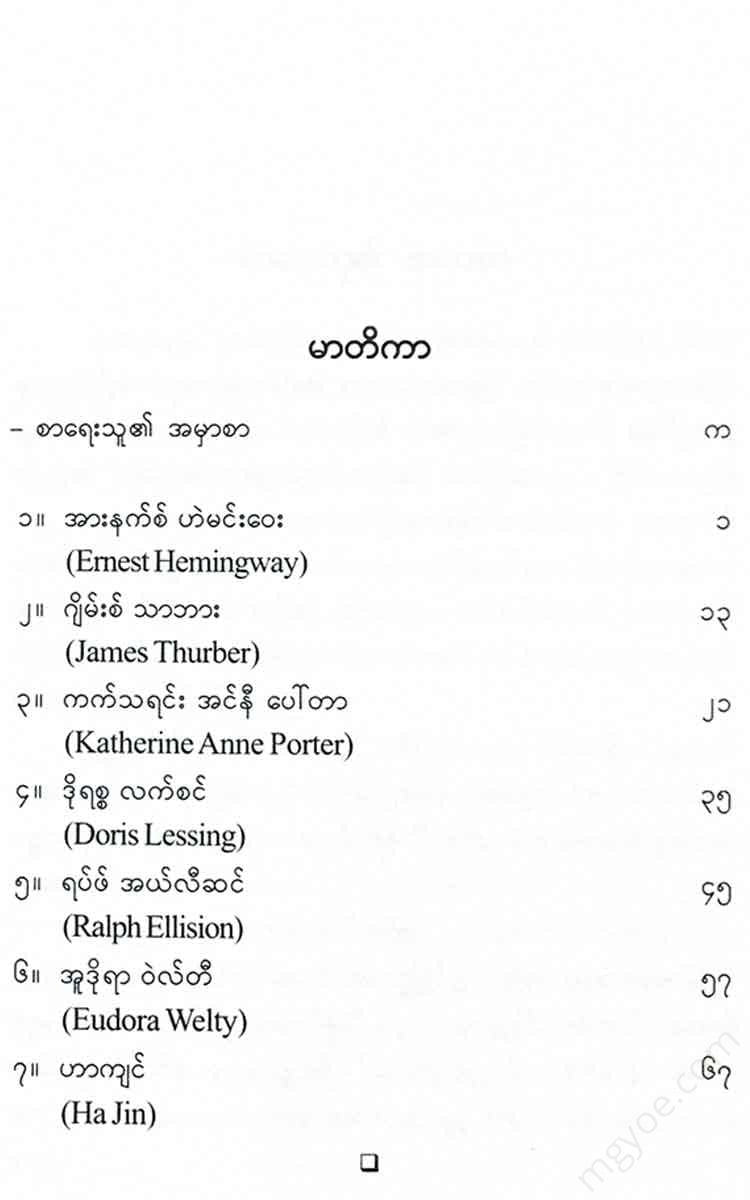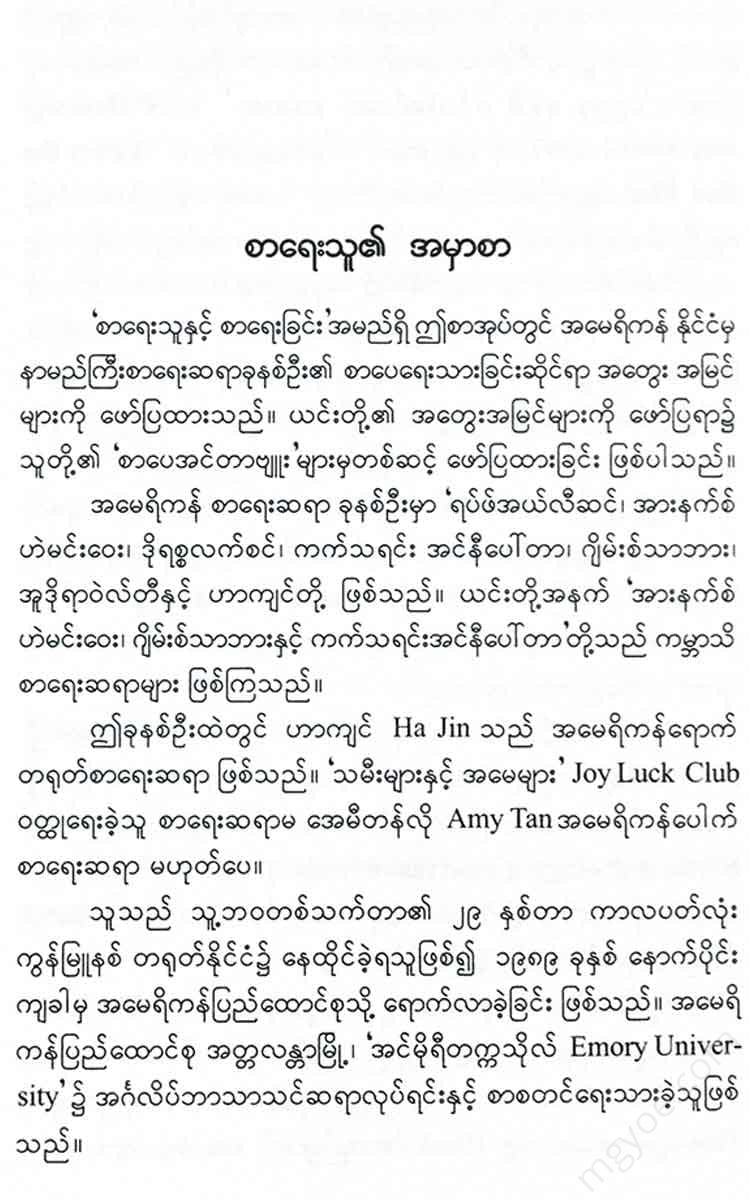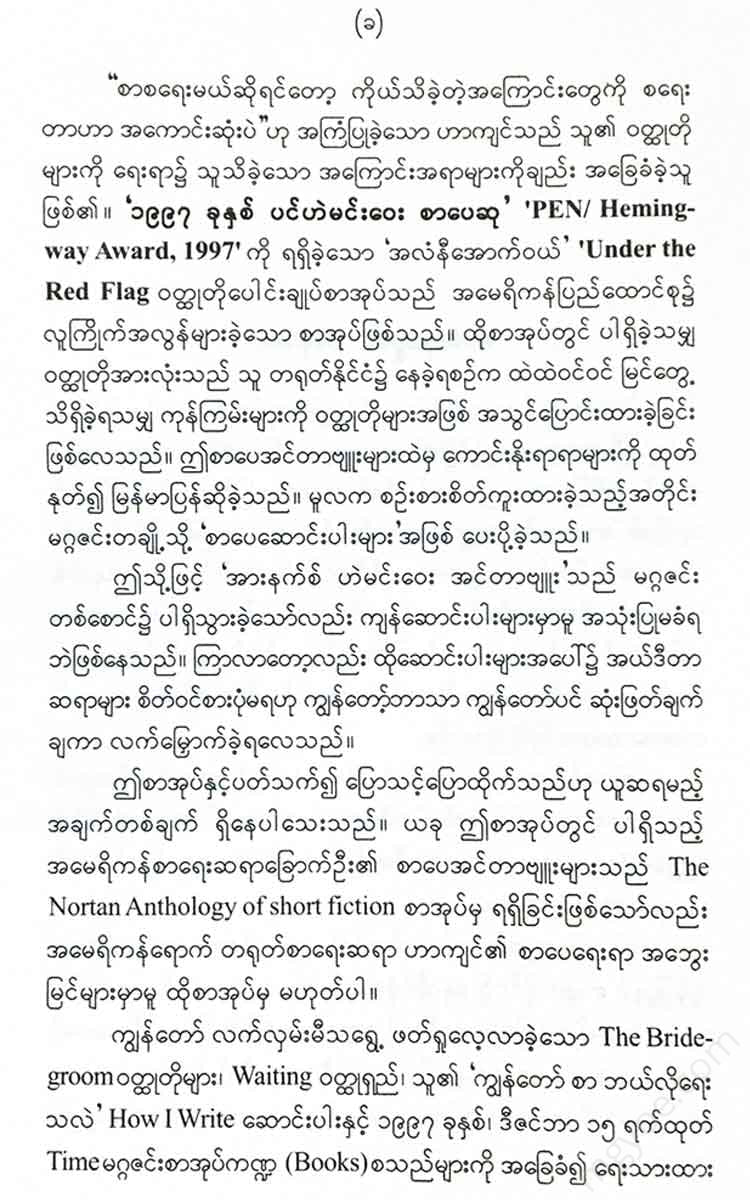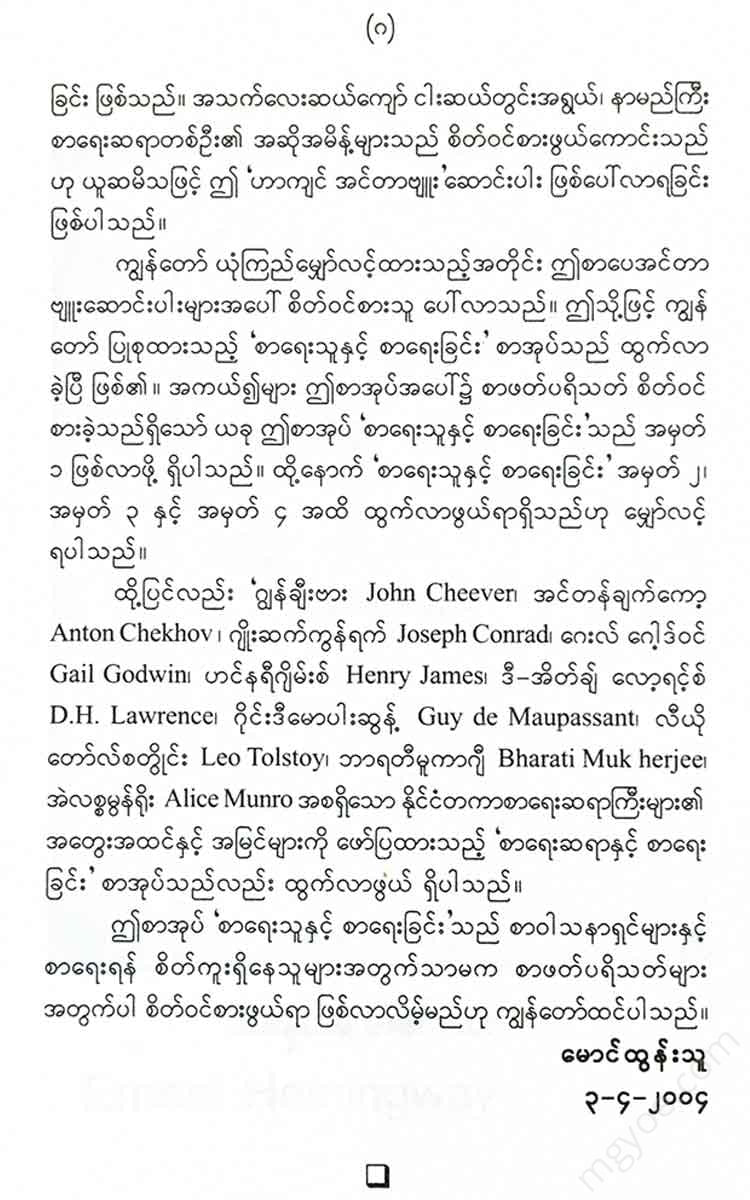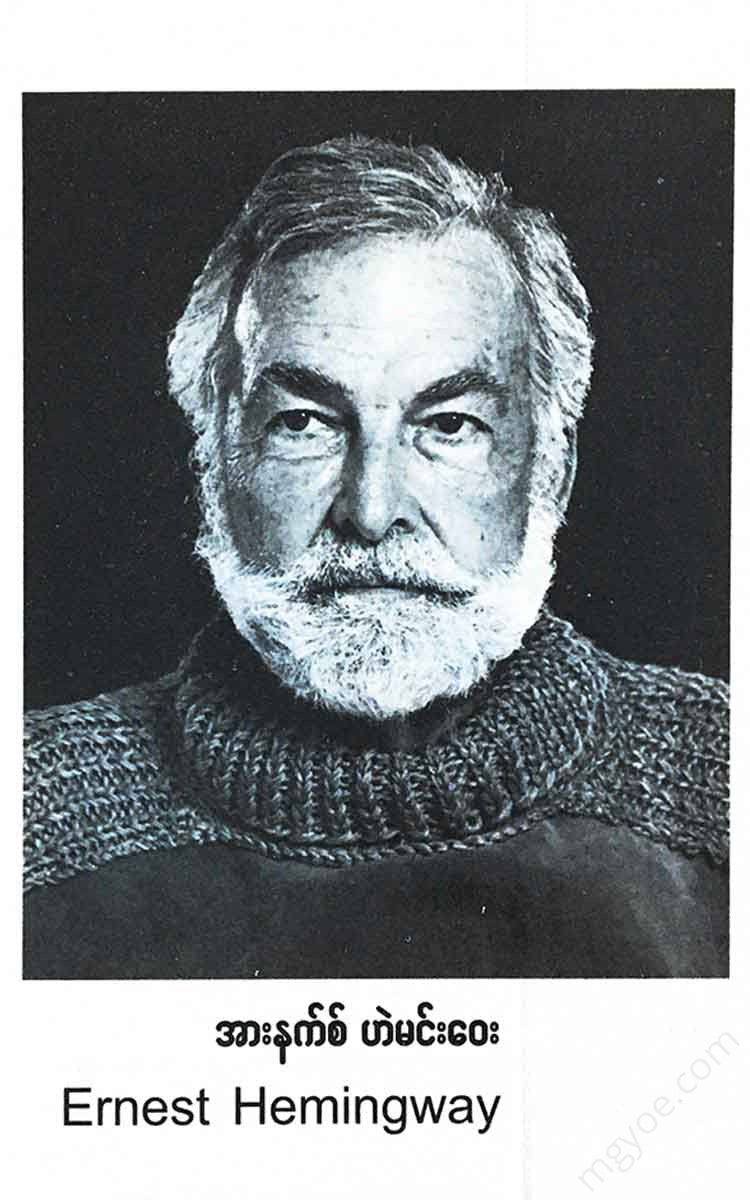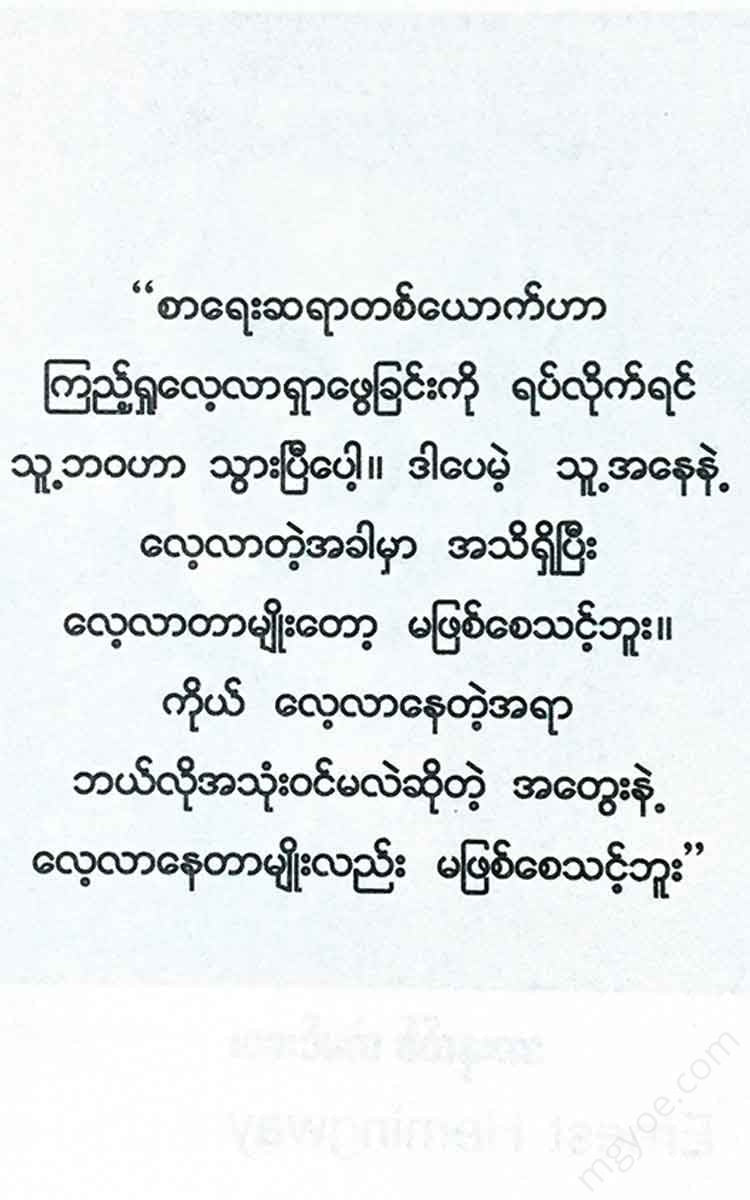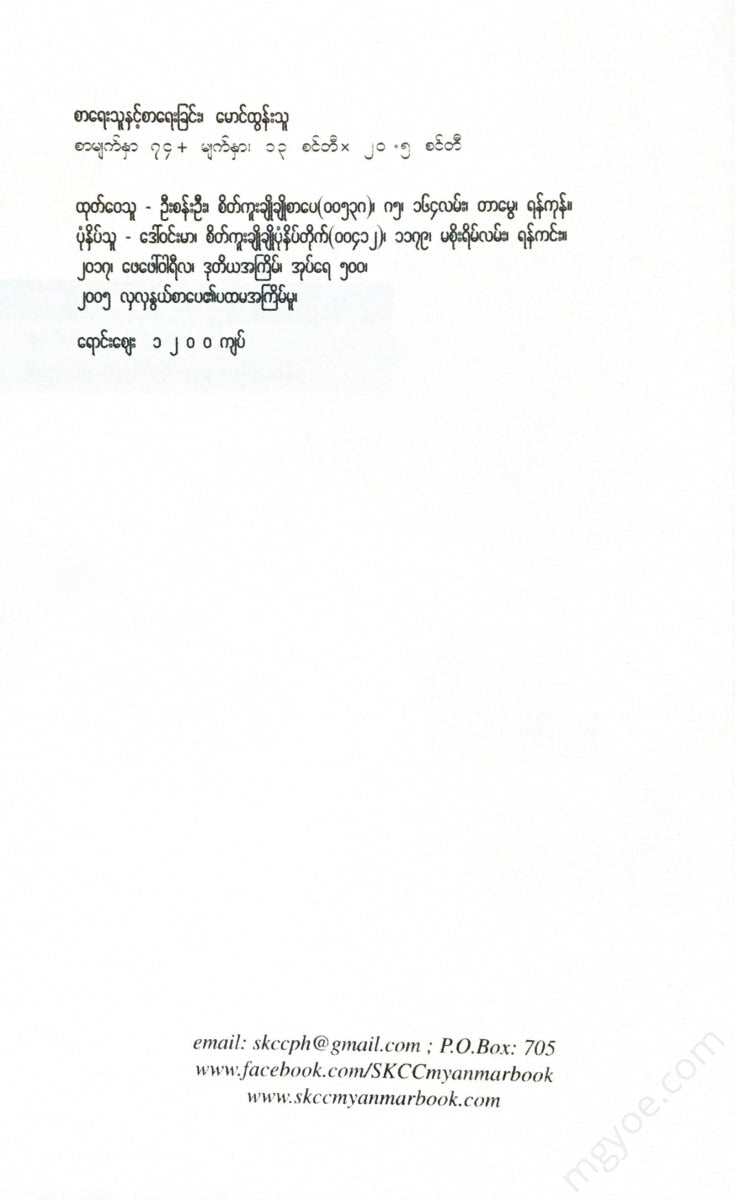စိတ်ကူးချိုချိုစာပေ
Maung Tun Thu - Writer and Writing
Maung Tun Thu - Writer and Writing
Couldn't load pickup availability
( 1899 - 1961)
Burmese readers are well aware of Ernest Hemingway. He is well known because many of his novels have been translated into Burmese. In addition, most of his novels have been made into films, so anyone who has watched them carefully will recognize his name.
Hemingway was the son of a doctor in Illinois, but had only a high school education. He was a keen fisherman and hunter from a young age. He developed a habit of writing concisely and concisely from his time working at a newspaper.
Later, when he wrote short stories and novels, he kept them short. However, his writings are said to be very rich. Many American literary enthusiasts of this era began to imitate his writing style.
27811 The Sun Also Rises (1926), A Farewell To Arms (1929), For Whom The Bell Tolls (1940), The Old Man & The Sea (1951) are his most notable works.
Hemingway also wrote many short stories. Although his writings were often very stilted, literary scholars say he had the ability to convey his message in a way that was both captivating and entertaining. This “Meeting Hemingway” not only explores his literary views, but also his thoughts on writing style.
Q. Do you give your novel a title while you are writing it?
Far. . . “No. I write down the names after I finish a novel or a book. Sometimes there are about a hundred names. I discard the ones I don’t like. Sometimes I discard all the names.”
Q. When you reject, do you even reject names that come from novels? For example, "Hills Like White Elephants."
Far.. I threw it away. The name came later. I went to Prunia and had a snack before lunch when I met a young woman. I knew that this girl had had a miscarriage. I went to her and talked to her. I didn't mention the miscarriage. But on the way home I thought about the story. I even forgot to eat lunch. That afternoon I spent writing the novel.
Q. So when you're not writing, you're researching and finding useful information to write about.
Far.. Sure. If a writer stops looking and exploring, his life is gone. But he should not study with knowledge and understanding. He should not study with the idea of how what he is studying will be useful. That may be true at first. Later, everything he sees and knows becomes a big collection of objects that are specific to him. If only...if only knowledge is useful, then I always try to write with the iceberg as a basis.
Every part of my answer is like an iceberg. Seven out of eight are underwater. If you take something out that you already know, it doesn't matter. It's like making the iceberg bigger. What's important is the part that isn't shown. If an author leaves something out because he doesn't know, you have a hole in your story.
Look at "The Old Man and the Sea." It's a book that's probably over a thousand pages long. It's got every story in it. How they live, how they're born, how they're educated, how they have children, and so on. If you could tell it all, any other writer would have written a great novel.
There are limits to what you can write. Anything you write with pleasure limits you. That's why I'm trying to create a different style.
First, I try to remove everything that is unnecessary for the reader. So that after reading the text, the events in the text become part of their experience. They accept it as it really is. It is very difficult to do that. I have to work very hard to do that.
Anyway, I was incredibly lucky in eliminating the unnecessary. I was able to give the full experience that I wanted to give. The luck is that I had a good person and a good friend. Later, writers who have come up recently forget that such things exist.
The ocean is like a person. It's a valuable thing to write about. So I'm lucky in that regard. I met a big-fishing ship captain. I got to know him and his fishing business. But I put that aside.
I once saw a pod of whales in the water. There must have been more than fifty of them. I once caught one with a harpoon. It was almost sixty feet long. And then it escaped. I threw those away too. I threw away all the stories I knew from the fishing village. What I was telling was what was happening and what was being done on the bottom of the iceberg.
Q. Archibald McLeish once told me about your method of conveying experiences to readers. He said that when you were writing about baseball games in the heyday of the Kansas City Star, you wrote about them. The writing was simple. You described the experience in detail and gave a very intimate account of the actual game. He said that this method allowed the reader to experience the entire game in his own mind.
Far. . I can't say that's true. I 've never written a baseball article for the 'Star.' Archie seems to be missing the point. What he remembers seems to be what I was trying to study in Chicago around 1920. At that time I was looking for things in the players that people didn't notice that made people feel.
There were all sorts of things, like a player taking off his gloves and throwing them back without looking back. The sound of the soles of the players' sneakers squeaking... and the pale skin of Jack Blackburn as he came out of training. He was drawing and noting them like an artist sketching.
Blackburn's strange skin tone, shaved beard, and old wounds from a razor are things that can stir people's minds before they know anything about him or his history.
Q. Have you ever written about a situation that you had no experience or knowledge of yourself?
"Way.. "That's a strange question." What do you mean by "I don't have any personal experience or knowledge?" Do you mean that you mean knowledge of sensual pleasures? If so, I would have to answer that I have written about it.
A writer is good, if he is good, he does not express it. He "invents." Or "makes" it out of personal knowledge or from a multitude of non-personal knowledge. Sometimes the wisdom and knowledge that cannot be expressed comes from forgotten ethnic or family experiences.
Who taught a pigeon to fly? Where does a bull get its courage for battle? Who gave a hunting dog its keen nose?
Q. How do you distance yourself from your experience before you can turn it into a novel? For example, tell us about the African atmosphere and gestures you were involved in?
Go.
Far.. It's based on experience. The first part that you see is not connected from the beginning. It's separate. The second part is very connected. I don't think there is a rule about how a writer should write about it.
The work of writing depends on how it fits and adapts to the individual's experience. It also depends on their creative abilities.
For a seasoned writer, being inside a burning airplane is valuable. He can learn a lot of important things very quickly.
Whether those things are useful to him or not will depend on what he survives and what remains.
Q. To what extent do you think a writer should be involved in the political and social issues of his or her time?
Far. Everyone has a sense of right and wrong as their own property. There should be no rules or regulations about how that sense should work. For a writer who is interested in politics, if he thinks his work should be sustainable, he should not consider politics as his own.
